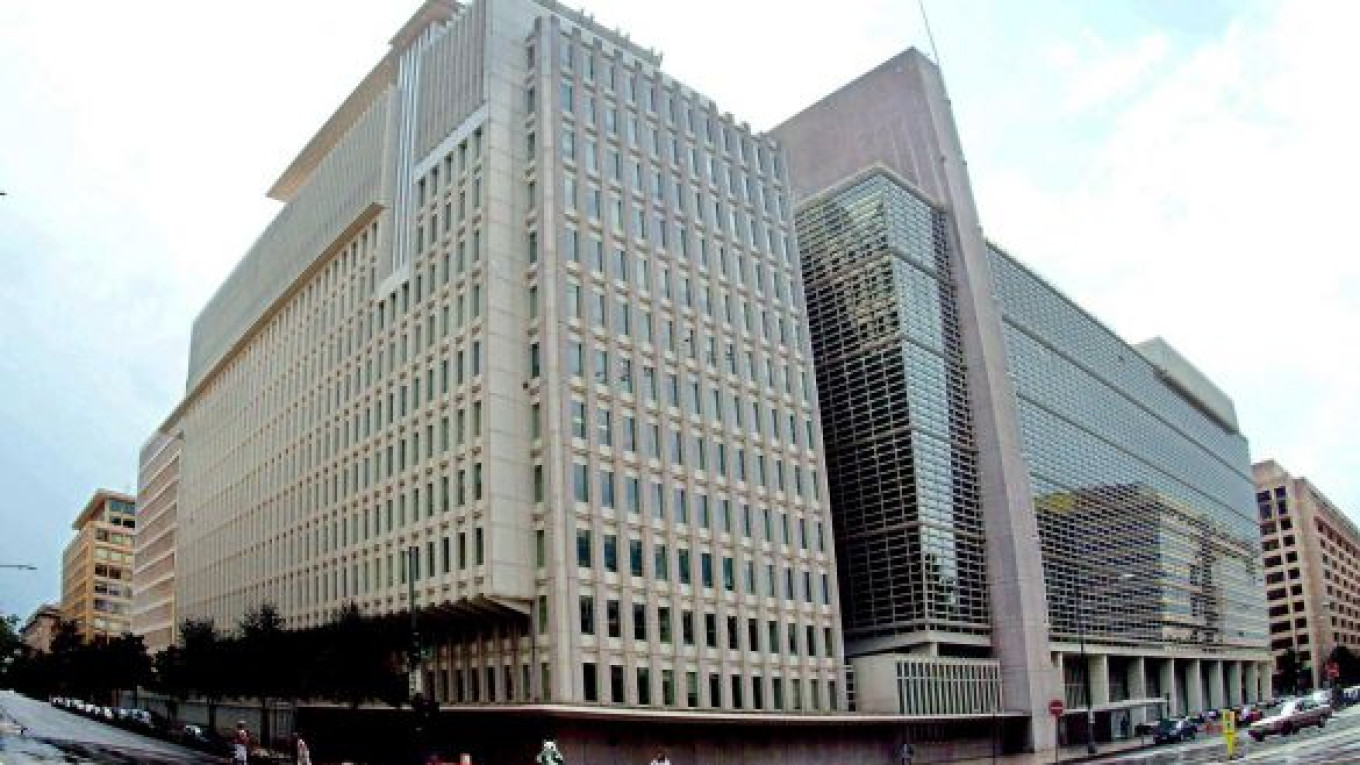The World Bank cut its 2013 growth forecast for the Russian economy to 3.3 percent Tuesday, citing deteriorating global conditions and stubbornly high inflation that is likely to dampen domestic consumer demand.
The downgrade is the second consecutive such move by the organization. It cut a prediction of 3.9 percent growth for this year to 3.6 percent in October.
"Economic activity in Russia has lost momentum," the World Bank said in its biannual Russian Economic Report.
While the official growth forecast for 2013 is 3.6 percent, Prime Minister Dmitry Medvedev has said that, with rising levels of investment, the government could achieve 5 percent annual growth.
Growth was 3.4 percent in 2012, the poorest result since the 2009 economic crisis, and has slowed over the last five months. January was the first time the Russian economy recorded a contraction in ten months, the Ministry of Economic Development said Monday, Interfax reported.
Consumption was the main driver of expansion in 2012, underwriting 3.2 of the 3.4 percentage points of growth, but high levels of inflation are likely to lessen its effect this year. ?
"Inflation has proved to be very persistent and has continued to increase," the World Bank's chief Russia economist Kaspar Richter told reporters. "Consumption will have a tougher time this year."
Year-on-year inflation in January was 7.1 percent and the Central Bank failed to keep inflation within its target bracket of between 5 and 6 percent in 2012.
Investment remains weak, and is unlikely to pick up, said the Washington-based bank. Economic activity in Europe will be more lackluster in 2013 than forecast, and oil price predictions have also been reduced.
But the World Bank highlighted that, despite growth concerns, the Russian poverty rate is expected to reach a historical minimum.
Aided by low unemployment, wage growth and a reduction in inflation, the number of people subsisting below the official poverty line is expected to fall from 16.9 million in 2012 to 15.9 million by 2014.
To incubate long-term growth in the Russian economy, the government must tackle a series of structural problems and make difficult decisions regarding the level of social expenditure, said the World Bank.
One of the most potentially damaging trends is an aging population.
"Russia's demographic transition poses profound social and economic challenges," said the report. "With current behaviors and policies, population aging could turn out to be an economic burden."
On average in 2011 there were 5 people of working age supporting 2.5 members of the dependent population, which includes the elderly and the very young. In 2013 this will rise to five workers supporting four dependents, said Richter.
Between 2009 and 2017, Russia's working-age population is expected to shrink by one million people a year.
Contact the author at h.amos@imedia.ru
Related articles:


